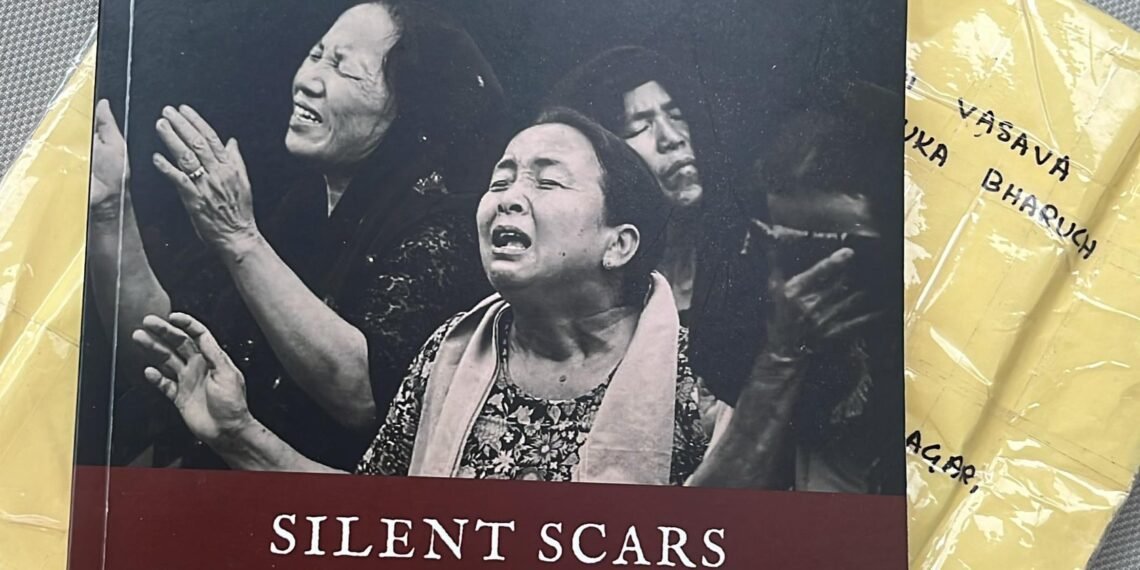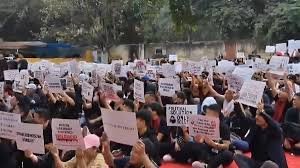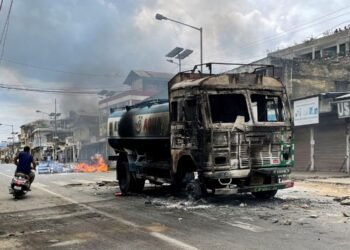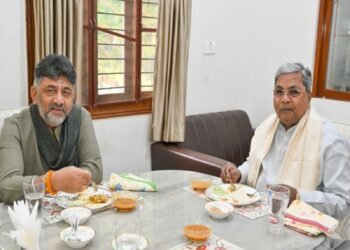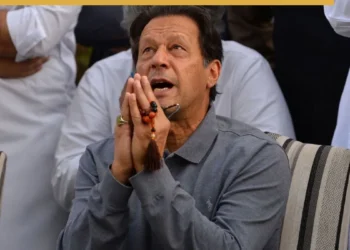In his searing review, journalist and commentator Navin Upadhyay calls Silent Scars “a gut-wrenching yet essential chronicle” of Kuki-Zo women’s suffering amidst the Manipur ethnic conflict. Drawing on the book’s raw testimonies and unflinching detail, he highlights its power to humanize trauma, indict systemic failures, and spark a necessary national reckoning.
BY Navin Upadhyay
Silent Scars: Weaving stories of Kuki-zo women in Manipur violence is a poignant and powerful book that amplifies the often-ignored experiences of Kuki-Zo tribal women caught in the devastating ethnic violence that has gripped Manipur since May 2023. Published by the Indigenous Tribal Leaders’ Forum (ITLF), this work stands as a testament to the resilience, pain, and courage of women who have endured unimaginable atrocities during the ongoing conflict between the Kuki-Zo and Meitei communities. Drawing from personal testimonies, firsthand accounts, and raw narratives, Silent Scars sheds light on the gendered violence and systemic marginalization faced by Kuki-Zo women, offering a heart-wrenching yet vital contribution to documenting the human cost of ethnic strife.
The book centers on the harrowing experiences of Kuki-Zo women, who have faced sexual violence, displacement, and loss in the wake of the ethnic clashes sparked by a controversial Manipur High Court order recommending Scheduled Tribe status for the Meitei community. This decision ignited tensions over land rights and political representation, leading to widespread violence that has killed over 258 people, displaced 60,000, and destroyed countless homes and places of worship. Silent Scars unflinchingly details the gendered dimensions of this conflict, where women’s bodies have become battlegrounds for ethnic vengeance.
READ: Amid Centre’s Inaction, Manipur Slides Back onto the Edge
Through survivor testimonies, the book recounts brutal acts of sexual assault, including the infamous May 4, 2023, incident in Kangpokpi district, where two Kuki-Zo women were paraded naked and gang-raped by a Meitei mob—an event that gained national attention only after a viral video sparked outrage. Other accounts include the story of Haokip, who was sexually assaulted and continues to struggle with deep psychological trauma, and mothers like Nancy Chongloi, who grieve daughters raped and murdered by mobs. These narratives expose the savagery of the violence, including allegations of complicity by Meitei women and state authorities, who reportedly failed to act on complaints or even handed victims over to perpetrators.
2सालों से जारी #ManipurViolence पर #मणिपुर कि #KukiZo आदिवासी महिलाओं ने इस #SilentScars किताब में सालों से आदिवासियों पर हो रहे अमानवीय अत्याचार और पिछले 2सालों में हुए बर्बरतापूर्ण अत्याचारो को बताया है जो देश के बाकी राज्यों में आदिवासियों के साथ हो रहा है वैसा इनके साथ हो रहा… pic.twitter.com/XLnXchWzpw
— Chhotubhai Vasava (@Chhotu_Vasava) June 25, 2025
The book also explores the broader socio-political context, highlighting the Kuki-Zo community’s marginalization, the patriarchal constraints within their own tribal structures, and the state’s inadequate response. It critiques the systemic biases in media coverage, which often downplayed Kuki suffering while amplifying narratives that align with Hindu nationalist agendas. By weaving these elements together, Silent Scars not only documents individual pain but also indicts the structural failures that perpetuate such violence.
Silent Scars excels in its raw authenticity. The use of firsthand accounts ensures that the voices of Kuki-Zo women—so often silenced in mainstream discourse—are front and center. The book’s unflinching honesty about sexual violence and its psychological toll is both its greatest strength and its most haunting quality. It humanizes statistics, giving names and stories to the victims, such as Rosie Chongloi, whose assault at a car wash in Imphal underscores the brutality of mob violence.
The book also stands out for its intersectional lens, addressing how ethnic, gender, and religious identities compound the vulnerabilities of Kuki-Zo women, who are predominantly Christian in a state governed by a Hindu-majority BJP administration. It highlights the double burden of external violence and internal patriarchal pressures, as Kuki-Zo women activists like Mary Beth Sanate navigate interference from male-led tribal bodies while advocating for justice.
READ: Trump Touts ‘Big Deal’ with India—But Is It Real?
While Silent Scars is a vital document, but its scope is somewhat limited by its singular focus on Kuki-Zo perspectives, which may leave readers wanting a broader analysis of the conflict’s complexities, including Meitei grievances and the role of Naga communities. The book’s polemical tone—though understandable given the gravity of the atrocities—occasionally risks being perceived as one-sided, which could alienate readers seeking a more balanced exploration. Additionally, the lack of accessibility—being unavailable on major platforms like Amazon—limits its reach, potentially confining its impact to already sympathetic audiences.
Silent Scars is more than a book; it is a call to action. By documenting the “silent” scars of Kuki-Zo women, it challenges the indifference of authorities and the selective outrage of mainstream media. Its release aligns with broader advocacy efforts by groups like the ITLF, Kuki Inpi, and the Kuki Students’ Organisation, who demand justice and separate administrative arrangements for the Kuki-Zo community. The Book has been published by Kuki Zo Women’s Forum Delhi and NCR . The book resonates beyond Manipur, drawing parallels to the plight of tribal women across India, as noted by X users like @Chhotu_Vasava, who connect its themes to wider indigenous struggles.
Silent Scars is a gut-wrenching yet essential read that lays bare the human toll of Manipur’s ethnic conflict through the lens of Kuki-Zo women’s suffering. Its strength lies in its unfiltered testimonies and its refusal to let these stories fade into oblivion. While it may not offer a comprehensive analysis of the conflict’s many facets, its focus on gendered violence is both its purpose and its power. For readers seeking to understand the intersection of ethnicity, gender, and violence in one of India’s most protracted conflicts, Silent Scars is a vital, if harrowing, contribution to the narrative.


